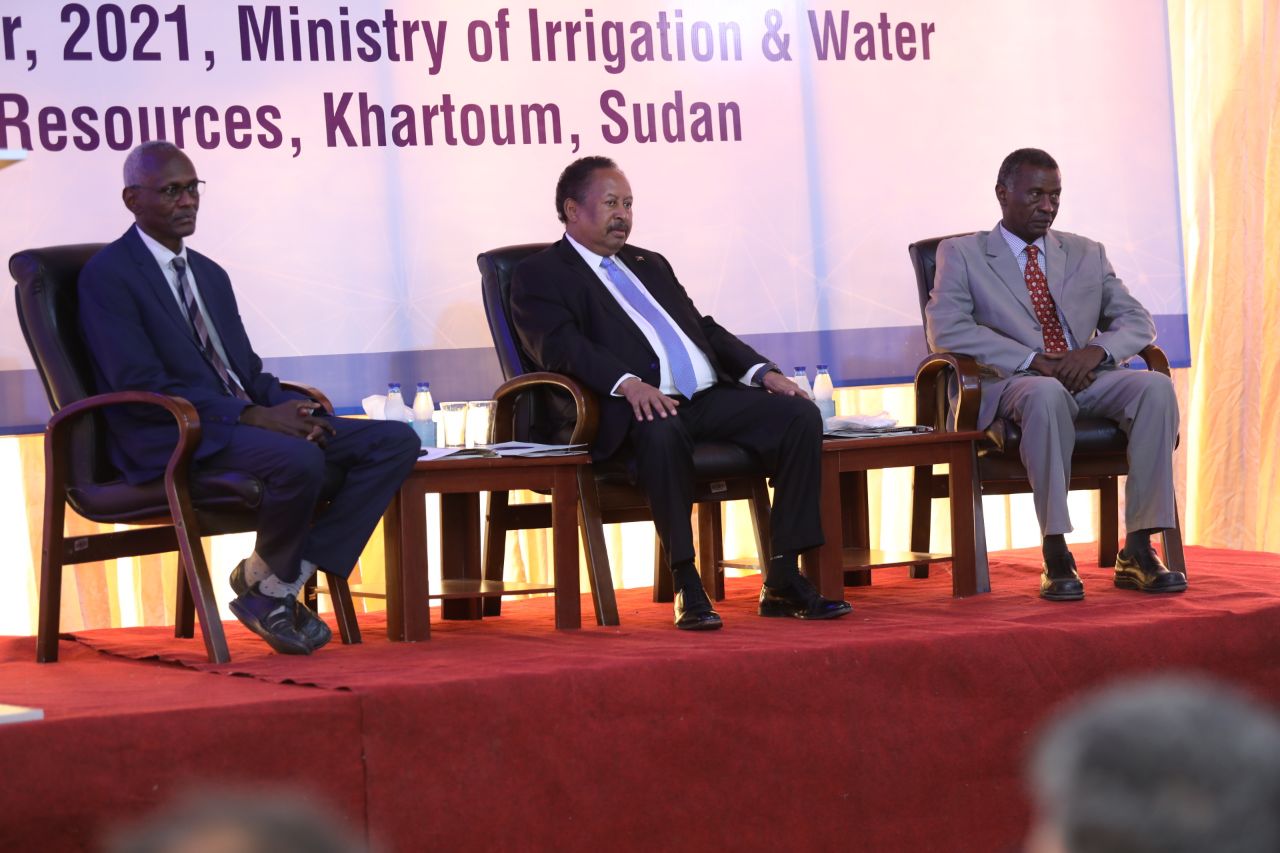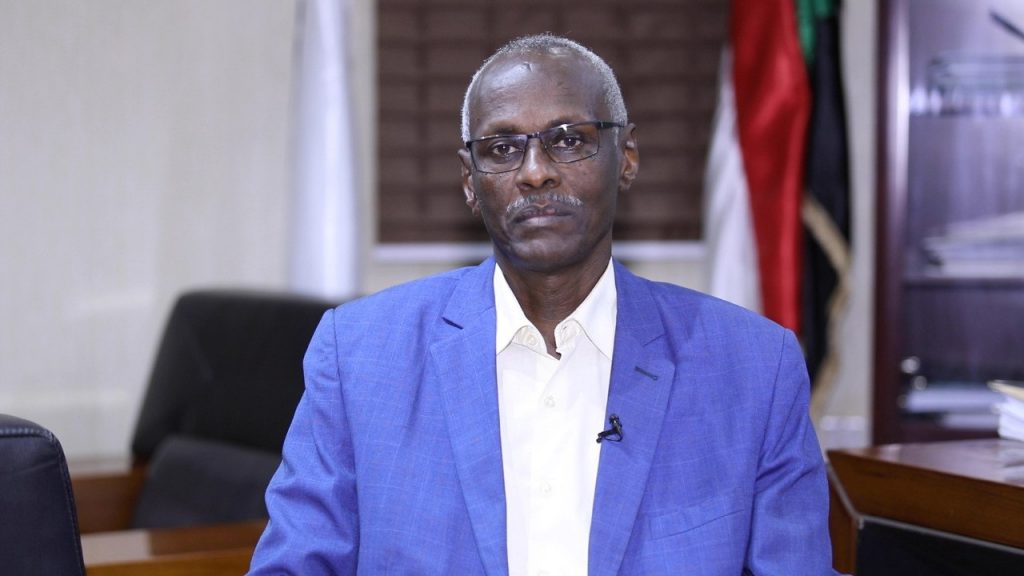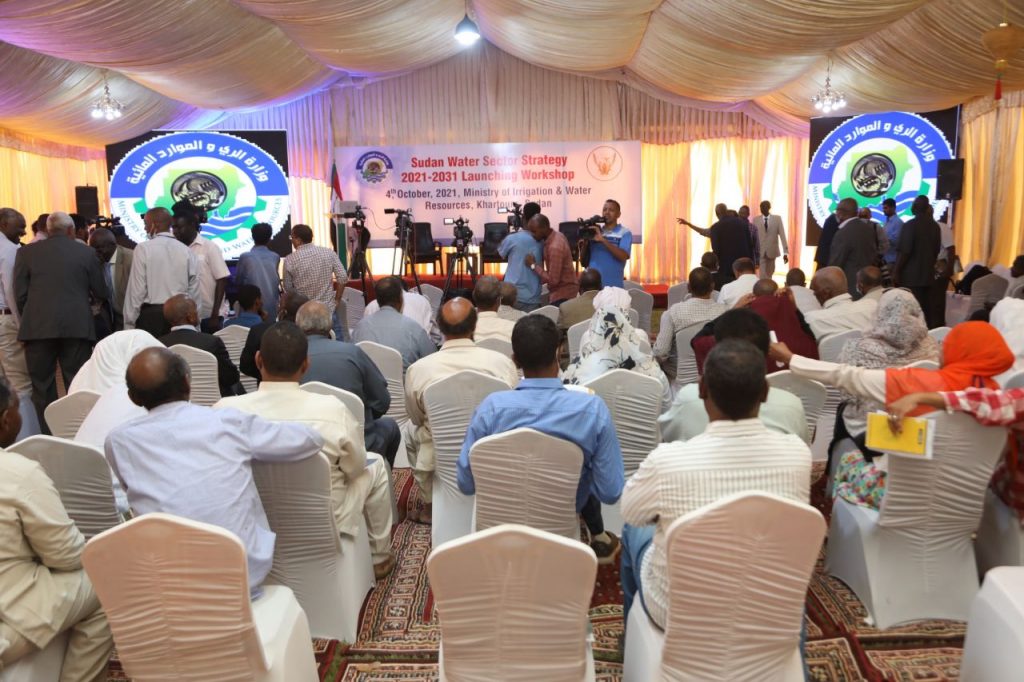
Ministry of Irrigation Launches First National Water Resource Strategy (2)
Staff Reporter
The Minister of Irrigation and Water Resources, Prof. Yassir Abbas will kick off on October 4, 2021, the workshop of the first national water resources strategy for the upcoming ten years (2021 – 2031) in the presence of the Prime Minister, Dr. Abdallah Hamdok, ministers, accredited ambassador, representative of the UN agencies, World Bank and partners of development.
In his address, Dr. Hamdok addressed the launching ceremony enumerated the benefits of the strategy, commending the role of the Ministry of Irrigation and Water Resources, the partners for their patience to come out with this comprehensive strategy, calling on other ministries and sectors to follow suit the successful joint efforts adapted by the Irrigation Ministry.

For his part, Minister of Irrigation and Water Resources, Prof. Yassir Abbas affirmed in his address that unlocking the full potential of the Sudan water sector is a huge challenge, but it is a struggle we can and must win through good vision, planning, and joint commitments to achieve our four absolute priorities:
- eradicating hunger and poverty,
- enhancing food security and livelihoods;
- creating dignified job opportunities, particularly for the rural youth and women;
- peace and domestic tranquility.
The Strategy will move from Vision to Impact in the decade 2021 – 2031 through the following three complementary transformative plans:
- The National Water Resources Management Transformation Plan (NWRM-TP)
- The National Irrigation Transformation Plan (NITP)
- The National Water Supply Transformation Plan (NWS-TP)
Employing these three transformative components of the plans as a vehicle, the Sudan Water Sector Livelihoods Transforming Strategy promises four impacts by 2031:
- A functional water resources management system with the necessary instruments and capacities to close disparities and inequalities within Sudan and facilitate harmony with its neighbors.
- All Sudanese people in rural and urban areas, including nomadic communities and their livestock, have improved access to adequate, affordable and safe water supply.
- Some seven million Sudanese farming and herding community members are food secure and enjoy better livelihoods.
- Dignified and rewarding employment opportunities for about two million Sudanese, particularly rural youth and women are made available.
Twenty to thirty percent of these achievements are set as a milestone for the end of the 2023 Transition Period.
The Ministry of Irrigation and Water Resources will earnestly work with all partners to identify and respond to peoples’ needs and shape facilitative policies, enable investments in peoples’ institutions and infrastructure, and mobilize and deliver value-adding inclusive services to the benefit of all.

This Livelihoods Transforming Strategy is the product of extensive consultations with various partner institutions and robust internal and external reviews conducted from May to December 2020. This participatory process enriched the content and grounded the Strategy in the local context and shared priorities of the Ministry and the water-sector community active in the country. On behalf of the Ministry, I would like to convey profound gratitude to every institution and individual that shared their time, perspectives, and expertise throughout the strategy development process. The Ministry is fully committed to successfully implementing the Strategy and harnessing its dividends for the deserving people of Sudan.

